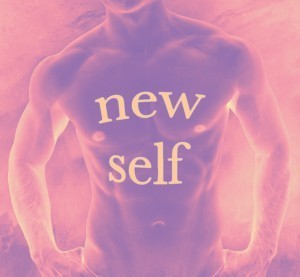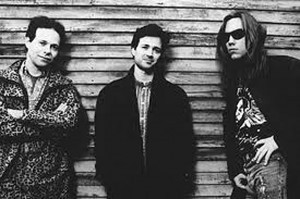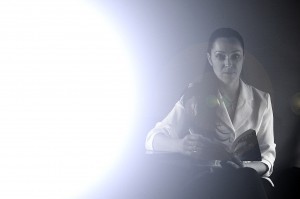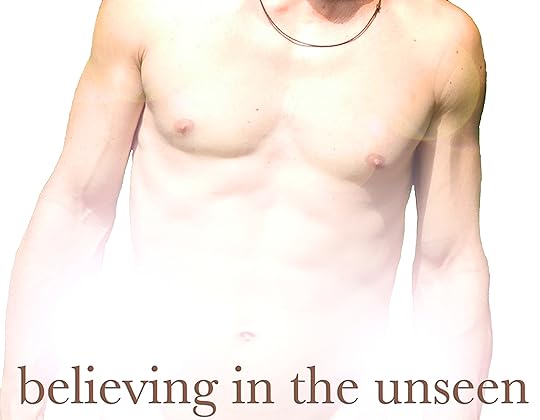Believing in the Unseen

FAITH, STRIFE AND THE HIDDEN LIFE
CROSS RIVER — This was originally going to be a webpiece about suffering.
It was going to be about how inescapable suffering is when we pursue meaning. It was going to be about how integral suffering is when we pursue happiness. It was going to be about how suffering can be redemptive when we pursue peace.
But I realized that would never work.
Suffering is unbearable without faith. And to date, I have written nothing about faith.
It is my fault for relying on my experience to dictate the order of ideas that I’m putting on this Wall instead of relying on design. The problem with using my experience as a guide is I burned such a destructive path into adulthood that I had to beg spare parts from strangers to put myself back together. I can’t commend my example to anyone, and my mind still renders things of meaning out of order.
As a result, the great suffering piece is on hold so that a little faith piece can be told.
It has to be a little piece, because faith is the domain of masters and masterpieces.
A master would say that faith is the bridge between prayer and love:
“The fruit of silence is prayer, the fruit of prayer is faith, the fruit of faith is love, the fruit of love is service, the fruit of service is peace.” (Mother Teresa)
A masterpiece would say that faith is the union of reason and revelation:
“Faith is the assurance of things hoped for, the conviction of things not seen.”
(Hebrews, 11:1, NASB)
 I don’t have any museum-quality definitions of faith to share, although I have to say that the beauty and order we revere most must not be confined to roped-off pedestal displays, or restricted to the care of curators with white gloves.
I don’t have any museum-quality definitions of faith to share, although I have to say that the beauty and order we revere most must not be confined to roped-off pedestal displays, or restricted to the care of curators with white gloves.The higher the ideal the more necessary it is to carry it in our hearts and wear it on the streets, even though there is always the risk of it being broken or soiled out in the open, because everyone’s hands are rough and everyone’s hands are dirty.
My definition of faith is a street definition, based on my experience. And my experience is that faith is so much a part of everyday life that we don’t recognize it.
If we would only recognize the disguises of faith, we could tap into faith’s power to overcome suffering, and draw the inspiration from faith to serve others.
Before I break faith down, I hope it is clear that I am not talking about faith in ourselves as though all I mean is self-confidence. I am not talking about faith in another person as though all I mean is trusting someone we love. I am not talking about faith as merely supporting a person we admire.
 “I don’t believe in no car /
“I don’t believe in no car /
I don’t believe in General Motors /
I don’t believe in the President /
or the League of Women Voters /
I don’t believe in these things /
All these things might fail /
I don’t believe it’s going to snow /
it might sleet, rain or hail”
None of these examples that pass for faith supply enough power to accomplish what we cannot do for ourselves. In fact, I would make the argument that faith in myself and faith in other people fed my existential crisis as a teenager and as a man of 20 more than it diminished it, because the object of my faith was so fallible.
What we are really talking about is a belief in something greater than ourselves, and I hope we can agree that while it may not be possible for everyone to unite theologically about what the proper focus of our faith should be, it is entirely possible for everyone to unite existentially.
Simply said, we are creatures of what we cannot see.
As a result, we believe in the unseen.
E.M. Forster in his unparalleled criticism “Aspects of the Novel” observes that “We live between two darknesses … starting life with an experience we forget and ending it with the anticipation of something we cannot understand.”
Forster goes on to say that what is fictitious in serious fiction is the way readers are able to witness thoughts of characters that are hidden in real life. This is part of why he says “Human beings have their great chance in the novel.”
It is this secret life – the one that is hidden, for which no external evidence exists – where we have the most investment, and therefore where we have the most faith. It makes sense, then, that what we can see in life is made from what we cannot see.
Forster suggests that we really only experience five things of true consequence in life: birth, food, love, sleep and death.
I suggest that we do all of these things with faith. If we look at each of these five areas, maybe we can see how faith is as near to us as our breathing and as dear to us as our dreaming.
FAITH IS LIKE BIRTH – It is pure, whole and wonderfully made from parts that are wounded and divided.
Like faith, the triumph of birth makes a soul forget the trial of pain.
It is new enough to set the clock back to zero, and important enough to make time start over.
It is the perfect completion of countless expectations.
Just as we are reborn when we renew our hope, so it is with faith. We are able to renew our hope when we fear nothing from death because we expect everything from rebirth.
Birth is the first reason for Faith. Faith is renewal.
FAITH IS LIKE FOOD – It is enjoyable as a matter of the individual palate and it is required regardless of personal taste.
 It satisfies the most basic hunger for sustenance and the most advanced appetite for abundance.
It satisfies the most basic hunger for sustenance and the most advanced appetite for abundance.Food is sufficient to fill the stomach for a day, but the next day it needs to fill the stomach again if the body is to live.
It can be monotonous in the relentless routine of eating it and yet food never loses its power to be a singular delight.
Food brings people together around the table to share their gratitude and to renew their hope.
Food is the second reason for faith. Faith is fuel.
FAITH IS LIKE LOVE – It is the union that binds people together for life.
Just as in love when people say that they want proof before they commit, so it is with faith. But people never have proof of another person’s love – not in the scientific sense that proof is used. Instead people have a preponderance of evidence of another person’s love. Sacrifice. Unconditional fidelity. Forgiveness. This is evidence of love. So it is with faith.
Love endures everything. Love outlasts death. So it is with faith.
Love is the third reason for faith. Faith lasts forever.
FAITH IS LIKE SLEEP – It is the closest thing in life to oblivion.
 Just as Thoreau says that we awake in the morning to a higher life than we fell asleep from, so it is with faith.
Just as Thoreau says that we awake in the morning to a higher life than we fell asleep from, so it is with faith.It is the universal connection with the unconscious.
It is the life of the spirit without the body.
Like faith, sleep is the concrete need for the ethereal.
It is the need for the solace of solitude.
Just as dreams make the surreal seem grounded and the grounded seem surreal, so it is with faith.
Sleep is the fourth reason for faith. Faith is mystery.
FAITH IS LIKE DEATH – It is inescapable.

It is unexplainable.
It is as familiar to us as our own soul and yet it remains unknown.
It can often seem opposed to the life of matter and sight, and yet, more than anything else, it gives meaning to being.
We avoid it. We hide from it. We fight it. It seems like the enemy of our autonomy, but it forces us to decide who we really are and it allows us to see the value in others.
It makes eternity urgent.
It is a cold and empty place in the midst of mourning.
It makes life worth living. It makes suffering worth bearing. It makes service worth giving.
It is the great leveler of wrong.
It is deep sadness set to song.
Death is the fifth reason for faith. It is the guarantee of peace.
Published on July 07, 2012 10:39
No comments have been added yet.
excerpts from The Wall at newquoin.com
Revival | Revolution | Renaissance
Whether it’s for the criticism, the confessions or the connections about reading, writing and the life of meaning, The Wall is where we discover what we know about ou Revival | Revolution | Renaissance
Whether it’s for the criticism, the confessions or the connections about reading, writing and the life of meaning, The Wall is where we discover what we know about ourselves and what we know about our world by exploring the questions of origin and destiny and identity and purpose.
The Wall is a place for transformation as much as a place for information. It is also a place for your contribution. ...more
Whether it’s for the criticism, the confessions or the connections about reading, writing and the life of meaning, The Wall is where we discover what we know about ou Revival | Revolution | Renaissance
Whether it’s for the criticism, the confessions or the connections about reading, writing and the life of meaning, The Wall is where we discover what we know about ourselves and what we know about our world by exploring the questions of origin and destiny and identity and purpose.
The Wall is a place for transformation as much as a place for information. It is also a place for your contribution. ...more
- Rob Ryser's profile
- 1 follower






